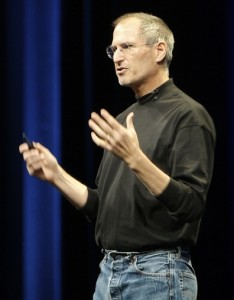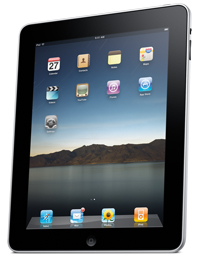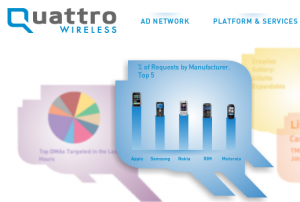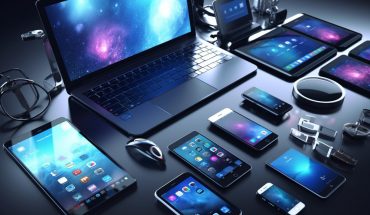
Apple CEO, Steve Jobs who has been instrumental in the Company's success. Photo Credit: Ben Stanfield
Apple had almost faded into the black through out the late 80s and early 90s, only to spring out of the ashes with the arrival of its founder Steven Paul Jobs (or “Steve Jobs”). Having dominated the technology headlines of the past decade, the company today is at the very top of its game. Apple is no longer a “computer” company but a technology powerhouse making huge strides into the content and media industries. In order to understand where Apple is going to eventually end up, one must first recall what the company has achieved just over the last decade.
Job’s Apple has conditioned a generation to jump on the bandwagon of industrial design for computers and accessories that only the Cupertino company seems capable of pulling off. Then came the Mac OS X that version after version drummed up a fan base until the Windows Vista debacle giving it a clear edge. A dream-run in the music industry has left Apple holding the premier hardware (iPod), software and distribution channels (iTunes) in its ever growing armory. The introduction of the iPhone meant both Steve Jobs and Apple got teleported to a galaxy far, far away that was until recently dominated by European and Asian players. Two years and three-billion applications later, Apple today is the standard to beat in the mobile arena while owning the most powerful mobile application distribution channels (AppStore). Sitting at the top of the technology mountain, only the sky seems to be the limit for both Job’s vision and his Apple Juggernaut.
So what’s next for Apple beyond just carrying out a war of attrition in computing and mobile while holding onto the advantage in the music industry? The story starts with the launch of its newest product and with it all the fanfair in the world and two low key acquisitions.
First and foremost was the acquisition of streaming music provider Lala.com for $85m at the very end of last year. Although Apple has sold almost 10 billion music tracks through its iTunes music store, the rise of new music streaming competitors such as Pandora and Last.fm together with the death of DRM has threatened this core business. The fix? Fundamentally overhaul the way the music industry makes money. If any company was capable of accepting this challenge, it would be Apple. After all it’s in the best interests for the company to keep the iTunes golden hen going for many years to come. The Lala.com acquisition hints at a subscription plan for music from Apple that would provide consumers with an all-you-can-download option for a fixed monthly fee.

The iPad. Apple's pitch for the fourth form-factor.
Then came the tablet computer which we all knew was coming. Despite the negative critique that it garnered, partially due to rumor fueled expectations by the tech-savvy public, the iPad is destined to be an equally unique frontier for Apple as Macs and iPhones are today. Reading fellow WhatYourTech writer Gadjo’s attempt to define the iPad ecosystem, it becomes clearly evident the universal applicability of this single piece of hardware. The iPad isn’t just a super-sized iPhone or iPod Touch, instead it’s a whole new form factor that could potentially rescue the ailing print media and open up a whole new vertical for Job’s Apple that’s pursuing a dream of building a media empire.
If the iPad has even half the success in embedding itself within the print media’s DNA that the iPod achieved with the music industry; then a few short years from now we’d be seeing all the world’s major publications selling their latest editions on Apple’s proprietary iBookStore. This itself could be one of the many reasons for the recent friction between Apple and long term ally Google. While the search giant continues to pursue it’s Google Books project to scan and make accessible “all” the world’s books for free, Apple is attempting to establish a closed (and controlled) ecosystem for the sale and distribution of Books, Newspapers and Magazines.
Don’t predict the death of the Kindle just yet though, as Apple and Steve Jobs don’t hold a first mover’s advantage when it comes to the portable eBook reader; that honor goes to Amazon’s Jeff Bezos.

Quattro Wireless: a leading mobile ad network acquired by Apple.
The final piece of the puzzle is the most recent acquisition of Mobile Advertising network Quattro Wireless by Apple for $275m. This entry into the advertising space is on the heels of Google’s approximately $750m purchase of mobile ad network AdMob. This once again is “Google-territory” and Apple is definitely playing with the search giant’s bread and butter. From Apple’s point of view however, what good is being the ubiquitous brand with respect to digital media and mobile hardware if you can’t profit from the fruits of your labor. The first thing Apple did after buying Quattro Wireless was to restrict developers from using “location-based” advertising on iPhone applications. This type of extremely targeted advertising funds many of the great “free” apps on the iTunes AppStore such as UrbanSpoon and Yelp!
How developers leverage the GPS on the iPhone will be stringently monitored and you can be sure any application that doesn’t conform with the new restriction would be denied entry to the AppStore. Selling location-based ads would most likely be made available exclusively to an Apple controlled advertising service. This restriction in particular is bound to hit home with Google who has been preparing to transition its phenomenal success on the web to the mobile space, especially given the market’s adoption of applications on the iPhone and its own Google Android platforms. Would Google still be willing to play in Apple’s sandbox remains to be seen, and there’s always the legality of such a broad restriction that affects consumers and competitors alike.
The future of the “Jobsonian” Apple is sure to be in pursuing the greatest centralization of technology that we’ve ever seen between computing, mobile, media and advertising. Lets hope that the most innovative company in the doesn’t fall in the same trap that Microsoft did by stretching itself too wide. We can also be sure that as time passes, the “open” stratergies pursued by Google would continue to vex the distinctly “closed” world Apple is pursuing. While both companies until recently saw Microsoft as a common enemy, the true technology rivalry in this coming decade would be between Google and Apple. For all of us technology enthusiasts; it’s going to be a wild party playing with the gadgetry that’s bound to fall from the skies as Apple prepares to leave earth behind and shoot for the stars.



